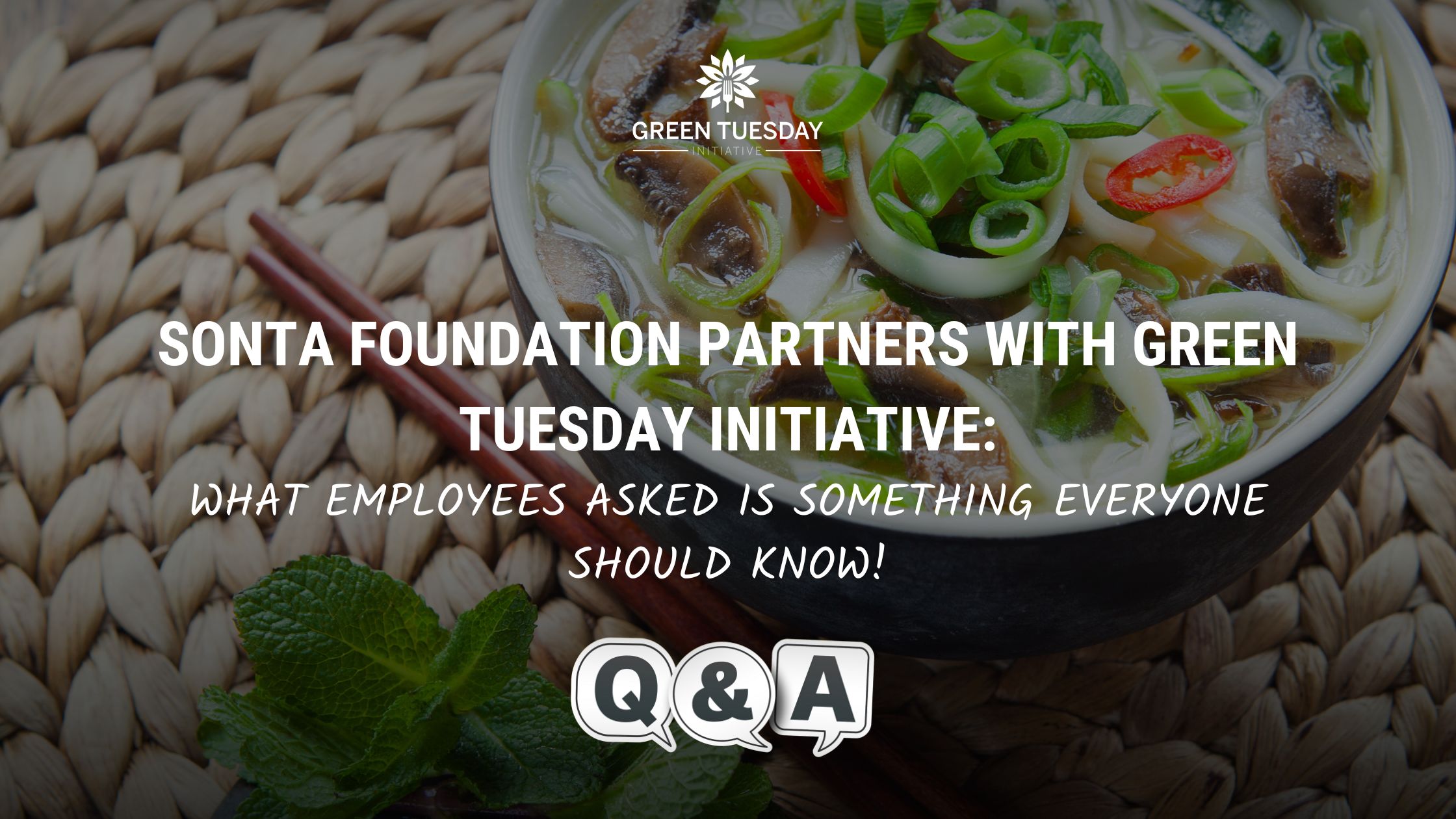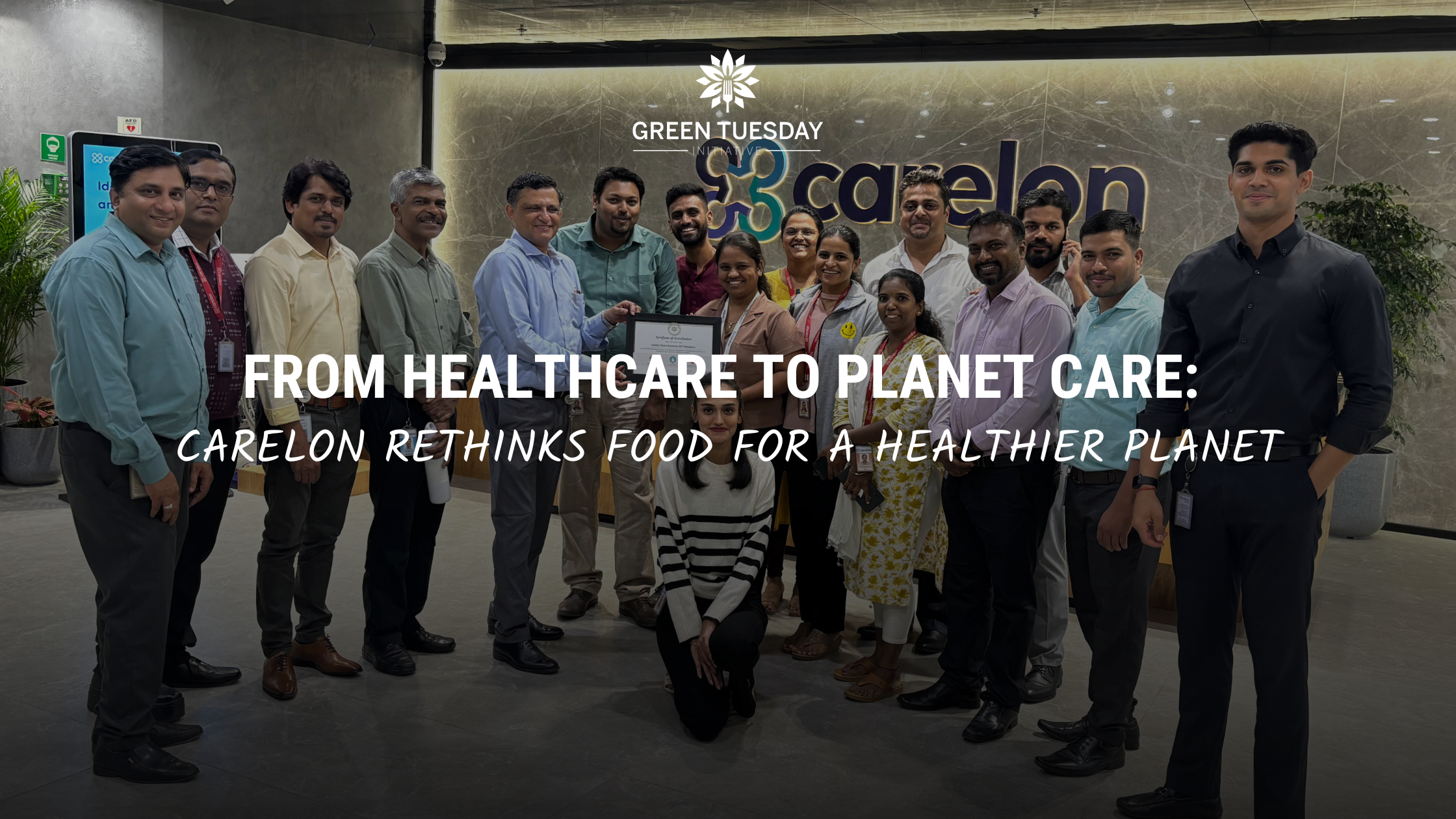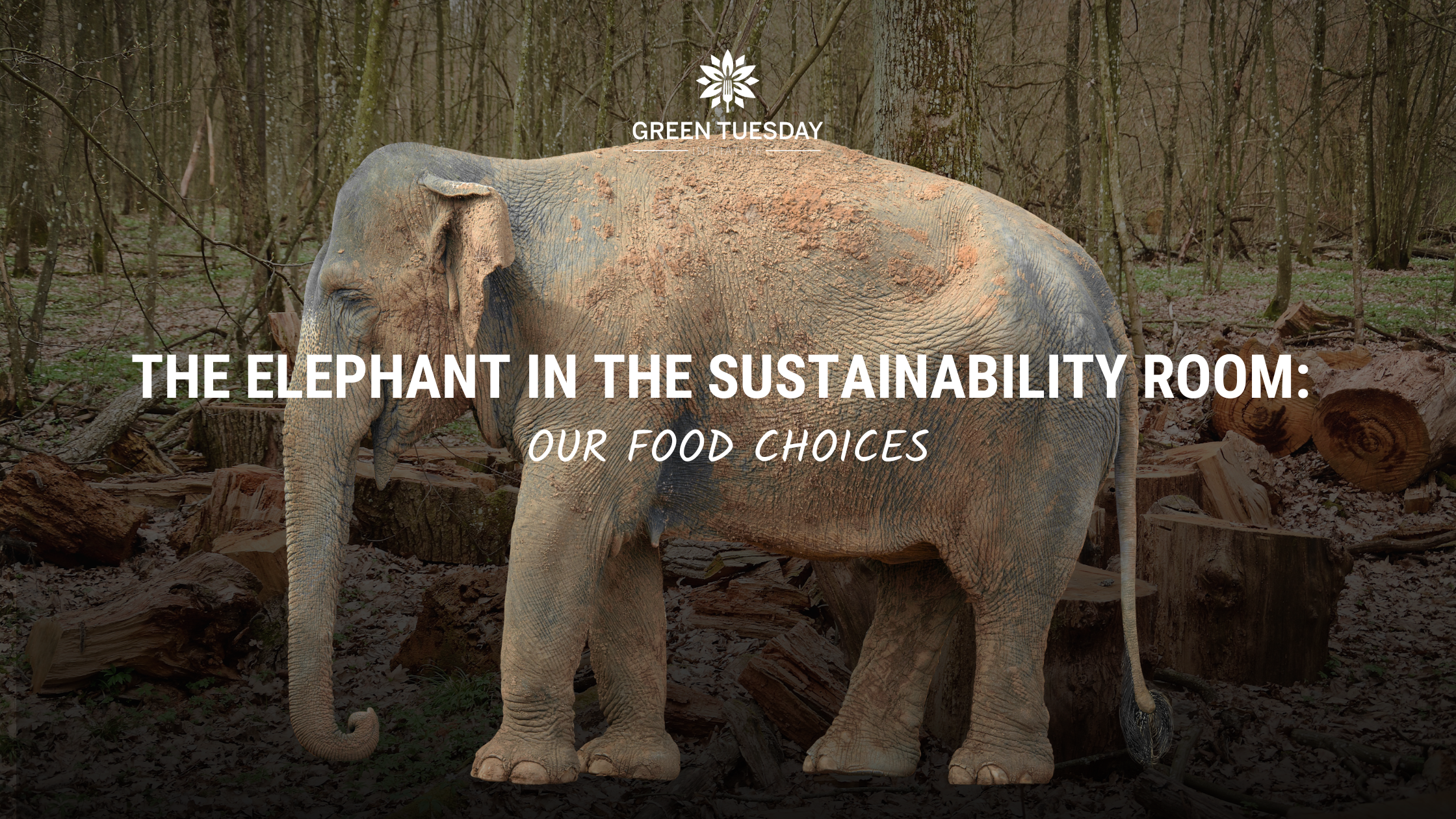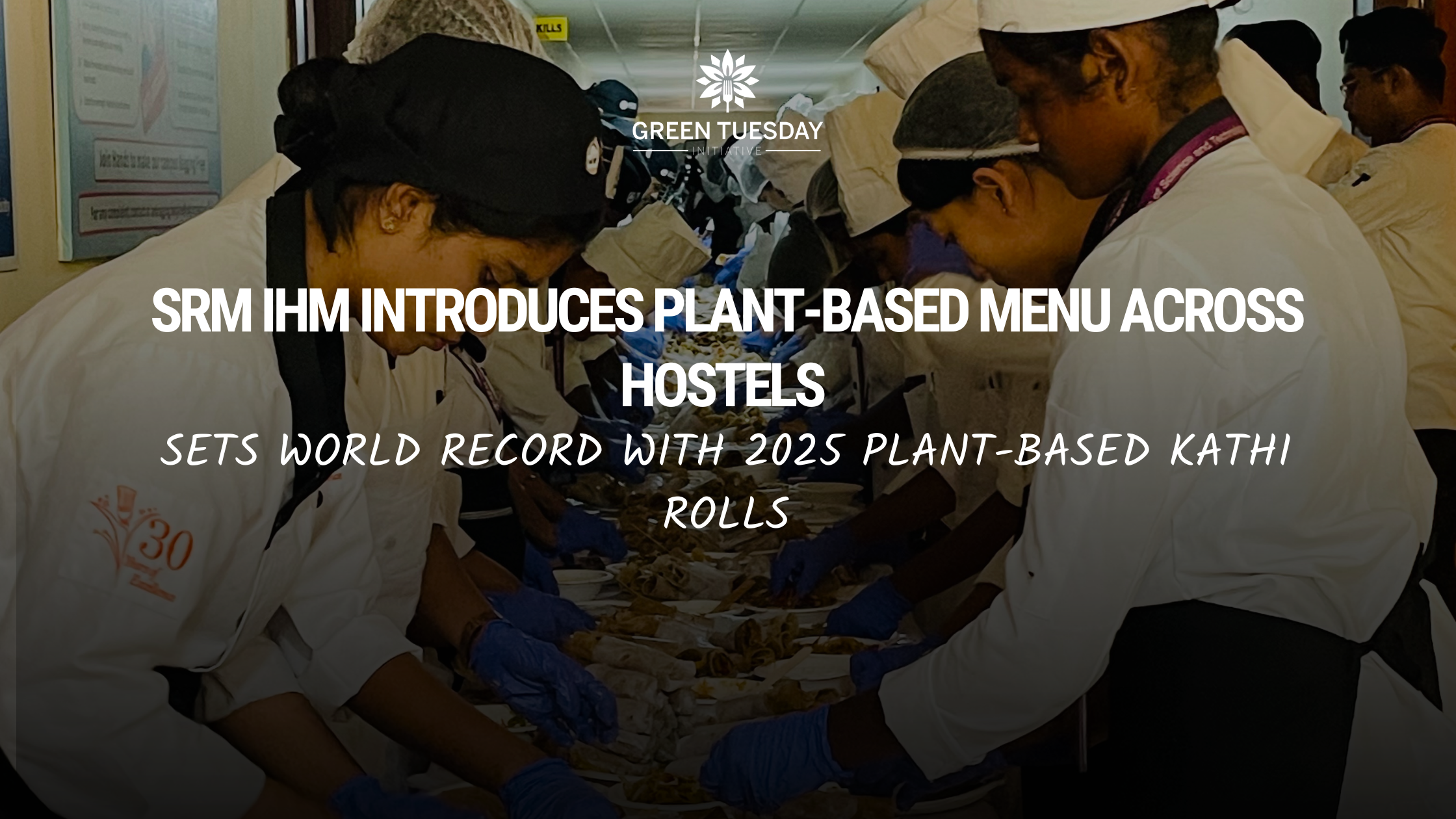In an exciting step toward fostering sustainable living, the Sonta Foundation has partnered with the Green Tuesday Initiative, encouraging employees to learn about the environmental and health benefits of plant-based foods. In collaboration with the Green Tuesday Initiative team, the Sonta Foundation hosted an interactive workshop in September to raise awareness about the plant-based diet.
During the workshop, Chef Q (Instagram: @chefq_vegan), a plant-based chef and nutritionist from Vietnam, provided valuable insights on incorporating plant-based meals into daily routines. Her expertise, grounded in certifications from Cornell University and culinary training from Le Cordon Bleu, allowed her to demonstrate practical cooking techniques and share recipes highlighting the flavors and benefits of plant-based ingredients. By addressing common concerns and misconceptions about plant-based eating, she helped attendees see how adopting a more sustainable diet can be both achievable and rewarding. Chef Q is a member of the advisory panel of experts at Green Tuesday Initiative.
Why Green Tuesday in Vietnam?
Agriculture plays a crucial role in Vietnam’s economy but is also a significant contributor to greenhouse gas emissions. As global efforts to mitigate climate change intensify, shifting dietary habits towards plant-based foods offers an impactful solution. By promoting plant-based diets, the Green Tuesday Initiative in Vietnam is taking the lead in reducing environmental strain, one plate at a time. The Green Tuesday Initiative collaborates with 58 partners across India and Vietnam, including major corporations and institutions such as FPT Software, Tech Mahindra Ltd., and Pondicherry University. Through its recent partnership with FPT Software, the initiative has successfully reduced carbon emissions by 452,628 kilograms and saves 110 million liters of water each year.
The partnership is pivotal, aligning with Vietnam’s growing movement toward addressing environmental concerns, especially food consumption-related concerns. With its agricultural roots and increasing need for sustainable practices, Vietnam stands to benefit immensely from adopting plant-based diets, both in terms of public health and environmental preservation.
What Employees Asked?
The recent awareness session at the Sonta Foundation brought forward several questions from employees, many of which reflect concerns and common myths about plant-based diets shared by the wider population in Vietnam. Below, we address these concerns and provide insight into the importance of plant-based diets. We received more than 20 questions from participants of the workshop and for efficiency, we are adding the top 6!
Green Tuesday Initiative’s Awareness Session with Sonta Foundation.
1. If I don’t get enough protein, especially if I exercise, won’t I lose muscle? How can I get strength from plant-based sources?
A common misconception is that plant-based diets lack adequate protein for physically active people. However, plenty of plant-based sources—such as lentils, chickpeas, tofu, quinoa, and even green peas—are rich in protein. By diversifying your meals with a range of these foods, you can meet your protein needs, build muscle, and maintain strength. Read more about plant-based nutrition here.
It’s worth noting that eating meat is often marketed as essential for building muscle, particularly for men. However, studies suggest that the overconsumption of meat, especially red meat, carries risks. Research among Seventh-day Adventist vegetarians found that male vegetarians had a 37% lower risk of ischemic heart disease compared to meat-eaters, likely due to the high intake of beef among the latter.
2. Is a plant-based diet suitable for people who are ill?
Yes, plant-based diets can be incredibly beneficial for those suffering from chronic illnesses such as diabetes or heart disease. Because of their rich nutrients, many people have been managing chronic diseases like type-2 diabetes and heart disease with plant-based diets.
A plant-based diet can provide many health benefits, including:
- 3/4–1/2 lower rates of high blood pressure
- 15–20% lower risk of cancer
- Significantly lower cholesterol levels
- 2/3 lower risk of type-2 diabetes
3. When I eat a plant-based diet, I feel hungry very easily. How can I plan a filling, plant-based diet?
If you find yourself getting hungry shortly after eating plant-based meals, it may be due to a lack of fiber or protein. By incorporating more legumes, whole grains, nuts, seeds, and vegetables into your meals, you’ll stay full longer. Together, these foods are packed with fiber and protein, providing lasting energy. Healthy fats like avocados, nuts, and olive oil can also contribute to feeling more satiated.
4. Plant-based foods are good for the environment, but are they too expensive? Can students follow this lifestyle?
Contrary to popular belief, plant-based diets can be very budget-friendly. Staples like rice, lentils, beans, and seasonal vegetables are often more affordable than meat and dairy products. Students and others on a tight budget can easily adopt a plant-based lifestyle by focusing on local, in-season produce and buying in bulk.
5. How does Vietnam’s agriculture impact the environment compared to other global countries?
Vietnam is one of the top 5 vulnerable countries to climate change due to its susceptibility to rising sea levels and extreme weather patterns. Its agricultural sector, while a vital part of its economy, has considerable environmental consequences, including water overuse, deforestation, and greenhouse gas emissions from livestock farming. On the global stage, Vietnam is still catching up with more sustainable farming practices. However, initiatives like the Green Tuesday Initiative are helping the country make strides toward reducing its environmental footprint through climate-friendly food choices. Additionally, the country has committed to reducing methane emissions under the Global Methane Pledge, which further underscores the need for sustainable solutions in agriculture.
6. How much impact can I create as an individual by opting for more plant-based food?
The impact of adopting a plant-based diet cannot be understated. Each person who reduces their meat and dairy consumption helps cut greenhouse gas emissions, conserve water, and slow deforestation. Even dedicating just one day a week to plant-based eating, like the Green Tuesday Initiative does, can significantly lower your personal carbon footprint. For example, replacing 1 kilogram of chicken breast with 1 kilogram of tofu saves 8.25 kilograms of greenhouse gas emissions and 532.74 liters of water. Similarly replacing 1 kilogram of cow’s milk with oatmilk reduces 3.25 kilograms of greenhouse gas emissions and 295.28 liters of water. (source: https://ourworldindata.org/environmental-impacts-of-food)
Final Thoughts
While the challenges of changing diets are real, the benefits—both personal and global—are clear. Whether it’s reducing your risk of chronic disease, saving on grocery bills, or helping to protect Vietnam’s natural resources, small changes in what we eat can lead to big results. With the Green Tuesday Initiative, the journey toward a greener future becomes easier for everyone.
For more information about the Green Tuesday Initiative and how your organization can participate, visit GreenTuesday.org.
About Green Tuesday Initiative:
Green Tuesday Initiative is a prolific campaign by Vegan Outreach (501c3 nonprofit in the USA) to help corporations and educational institutions reduce their environmental footprint by making small changes in the food they serve. Visit us at www.greentuesday.org




